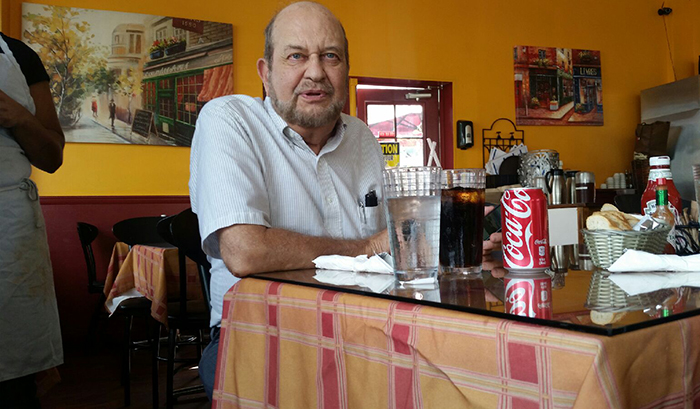It seemed almost too good to be true when Republican state Sen. Andy Vidak of Hanford authored a bill aiming to keep many ex-legislators from lobbying their former colleagues in Sacramento for three years after their departure.
Even better was the surprising response from majority Democrats: Unlike many proposals from Republicans, this idea did not die an instant death upon coming up in a Senate committee made up of four Democrats and just one Republican. The committee passed the bill out unanimously, once it was watered down.
But this bill still has merit. Here’s why:
As things now stand, legislators can resign their seats at any time, creating a need for a special election. Fully 58 of these have been conducted over the last 26 years, more than two a year. They have come thicker and faster lately than before: In 2013, Los Angeles County alone had 14 special elections to fill vacancies left by politicians – at a cost of $15 million. San Bernardino County had 13 special elections. Each cost $1 million. Some involved city councils and the boards of special districts.
But some were for high-profile posts in the Legislature vacated by incumbents seeking higher office or leaving for more lucrative jobs than those in the state Senate or Assembly, which pay a paltry $96,250 per year – plus perks like cars and copious staff. Half the special elections involving legislators were about incumbents leaving to take higher-paying jobs – many as lobbyists.
Wait-out Period Is Short
The most recent case was former Democratic Assemblyman Henry Perea of Fresno, who served five years before taking a lucrative job as a Sacramento lobbyist for the Pharmaceutical Research and Manufacturers of America. That’s the main lobbying arm of drug companies often collectively called Big Pharma.
Before him, former Democratic Sen. Michael Rubio of Shafter resigned to take a job with Chevron Corp. and Republican Sen. Bill Emmerson of Riverside County left to join the California Hospital Assn.
These men and others who leave their seats at mid-term now must wait only a year to come back and lobby their onetime colleagues. That is just half the time former U.S. senators are supposed to wait.
Mr. Vidak’s proposal, to be voted on by the full state Senate and possibly the Assembly later this summer, originally aimed to bar lobbying by lawmakers leaving at mid-term until the end of the first legislative session that begins after their departure.
That gobbledygook can be translated into “two to four years.” Legislative sessions run two years, and a legislator resigning only shortly after the start of one would have to wait for two sessions to end before getting down to work. Not many special interests, no matter how deep their pockets, would want to hire a legislator/lobbyist who would be idle that long.
So the Vidak measure was watered down, now requiring only a two-year wait, essentially doubling the current hiatus and putting California legislators on equal terms with departing U.S. senators.
Said Vidak aide Jann Taber, “The chair and other members of the committee were not prepared to support the bill without the amendments.”
The chair of that committee, the Senate Elections and Constitutional Amendments Committee, is Ben Allen, a Santa Monica Democrat elected with support from business interests. Another committee member is Carol Liu of La Canada-Flintridge, wife of disgraced former Public Utilities Commission President Michael Peevey. She may have some close knowledge of conflicts of interest.
Despite being watered down, this bill still ought to be on the list of must-pass legislation because it would lessen at least a bit the motivation for legislators to leave at mid-term and make them slightly less desirable new lobbying hires.
It is not as good as it started off to be, but it still is a step in the right direction, making this a classic case where the perfect should not serve as an obstacle to the good.
Mr. Elias may be contacted at tdelias@aol.com. His book, “The Burzynski Breakthrough, The Most Promising Cancer Treatment and the Government’s Campaign to Squelch It,” is now available in a soft cover fourth edition. For more Elias columns, visit www.californiafocus.net








